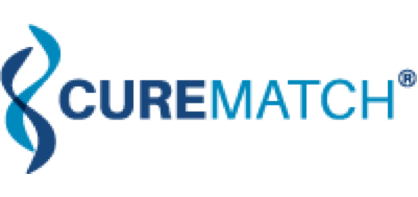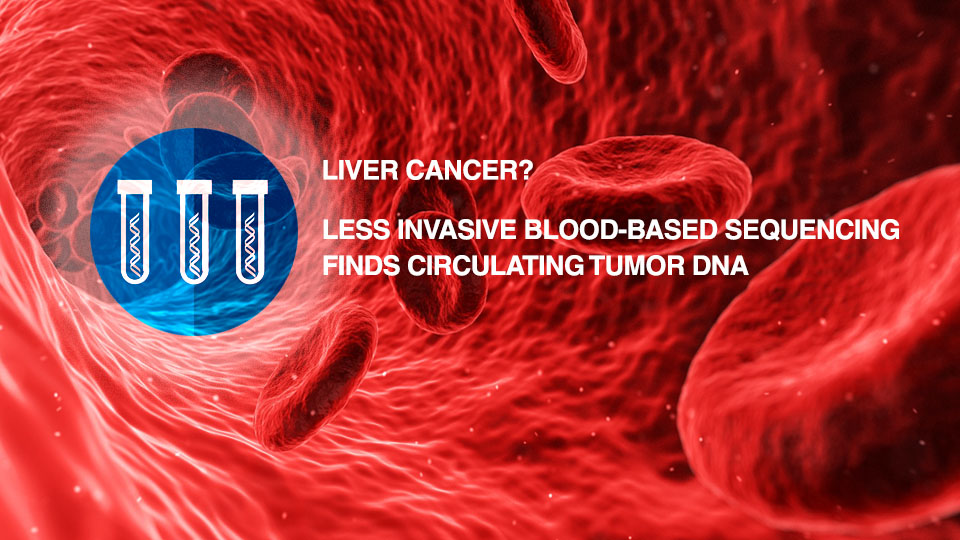Blood-based Tumor DNA Can Lead to New Personalized Liver Cancer Treatment Decisions
New study in The Oncologist supports the use of blood-based tumor DNA (liquid biopsies) in hepatocellular carcinoma (HCC) to facilitate personalized medicine. The CureMatch decision support platform matches personalized drug combinations for liver cancer patients.
SAN DIEGO, CA – March 26, 2018: A new cancer study[1] reports that next-generation sequencing of circulating tumor DNA (ctDNA) can provide therapeutically actionable genomic analysis in hepatocellular carcinoma (HCC). This is significant as liver malignancies are difficult to tissue biopsy especially due to increased bleeding risk. In order to improve treatment options, this study aims to offer clinical validation of the utility of somatic alterations identified in blood-derived ctDNA of HCC patients.
Hepatocellular carcinoma, also known as hepatoma, accounts for approximately 75% of all liver cancers and is the third leading cause of cancer deaths worldwide, approximately 800,000/year. HCC is generally diagnosed based on imaging. In the United States, HCC is the fastest growing cause of cancer mortality overall (Surveillance Epidemiology and End Results, SEER, program), and most cases of HCC are a result of cirrhosis of the liver due to alcoholism or infection from hepatitis B or C. There is only one systemic therapy approved by the U.S. Food and Drug Administration, Sorafenib, which has demonstrated an overall survival benefit of 2.3-2.8 months. Unfortunately, the median overall survival for advanced HCC is less than one year. There is a clear need to develop new treatments for this disease.
Identifying specific genomic alterations in a cancer can lead to the development of new treatments. Typically, molecular profiling involves a biopsy to extract nucleic acids from tumor tissue. More recently, next-generation sequencing of circulating tumor DNA (ctDNA) has become available which offers the potential advantages of:
- (a) extraction from a less invasive blood test
- (b) possible inclusion of genomic alterations from multiple tumor sites
- (c) facilitation of serial testing to track disease progression over time.
Conducting molecular analysis allows for the selection of anti-cancer drugs specifically matched to genomic alterations found in a patient’s cancer.
The study evaluated 14 advanced HCC patients via digital ctDNA sequencing of 68 genes. All 14 patients were found to have alterations, ranging from one to eight with a median of three, and several specific gene mutations were identified. No two patients had identical genomic portfolios, suggesting the need for customized treatment. Based on the next-generation analysis, 79% of patients were determined to have theoretically actionable alterations. Two patients who received matched treatments on the basis of the ctDNA results showed evidence of improvement. These two patients are described in detail in the study.
The authors of this research seek to advance personalized medicine in cancer care. Standard oncology is limited to therapies that have experimental justification, even if those treatments have not shown significant longitudinal success. Biopsy-free testing accelerates clinical research of precision medicine, and there has been a recent explosion of genomic and proteomic research driving drug design and development. As the genomic landscape of oncology is being established, ctDNA analysis in conjunction with computational modeling of drug interactions offers actionable insights to oncologists.
Two of the article’s authors, Dr. Igor F. Tsigelny and Dr. Razelle Kurzrock, are founders of CureMatch® a digital precision oncology company bridging the gap between legacy cancer treatments and advances in personalized medicine. The CureMatch intelligent computing system assists oncologists with the daunting task of selecting the most promising combinations of anticancer drugs for each patient. Utilizing proprietary algorithms to analyze over 4.5 million combinations of commonly used as well as newly approved cancer treatments found in massive pharmacological and clinical archives, CureMatch scores and ranks Personalized Combination Therapy® options to target specific molecular aberrations and improve the precision of cancer treatment recommendations.
“In personalized medicine, elucidation of the functional impacts of mutations plays an important role. In less obvious cases, such as those presented in the study, significant modeling work is required,” stated Dr. Tsigelny. “We demonstrated that flexibility of binding can be considered an important parameter for prediction of proteins’ activation and lead to selection of drugs targeting these proteins.”
###
Journal Reference
[1]Next-Generation Sequencing of Circulating Tumor DNA Reveals Frequent Alterations in Advanced Hepatocellular Carcinoma
Sadakatsu Ikeda,a,h Igor F. Tsigelny,a,d,e,i Åge A. Skjevik,d,f Yuko Kono,b Michel Mendler,b Alexander Kuo,b Jason K. Sicklick,c Gregory Heestand,a Kimberly C. Banks,g Amirali Talasaz,g Richard B. Lanman,g Scott Lippman,a Razelle Kurkrocka
aCenter for Personalized Cancer Therapy, Division of Hematology/Oncology, Department of Medicine, bDivision of Gastroenterology, Department of Medicine, and cDivision of Surgical Oncology, Department of Surgery, University of California San Diego Moores Cancer Center, La Jolla, California, USA; dSan Diego Supercomputer Center and eDepartment of Neuroscience, University of California San Diego, La Jolla, California, USA; fDepartment of Biomedicine, University of Bergen, Bergen, Norway; gGuardant Health, Inc., Redwood City, California, USA; hTokyo Medical and Dental University, Tokyo, Japan; iCureMatch Inc., San Diego, California, USA
The Oncologist. 2018 Feb 27. pii: theoncologist.2017-0479. doi: 10.1634/theoncologist.2017-0479. [Epub ahead of print]
http://theoncologist.alphamedpress.org/content/early/2018/02/28/theoncologist.2017-0479.abstract
About The Oncologist®
In a constantly changing field, oncology and hematology professionals must stay at the cutting edge of new diagnostic and therapeutic advances for the benefit of their patients. To that end, The Oncologist® is dedicated to translating the latest research developments into the best multidimensional care for cancer patients. Thus, The Oncologist is committed to helping physicians excel in this ever-expanding environment through the publication of timely reviews, original studies, and commentaries on important developments.
About CureMatch®
CureMatch, Inc. is a digital precision oncology company bridging the gap between legacy cancer treatments and advances in personalized medicine. CureMatch scores and ranks Personalized Combination Therapy® options to target specific molecular aberrations in cost-effective PreciGENE reports. This actionable intelligence guides oncologists to effectively customize treatment for each individual patient. Based in San Diego, CA, the CureMatch technology has expert foundation in supercomputing, oncology, genetics, proteomics, biochemistry, and cell biology. For more information, visit www.curematch.com
Media Contact
Name: Larissa Anderson
Company: CureMatch
Phone: 858-859-2873
Email: press@curematch.com

